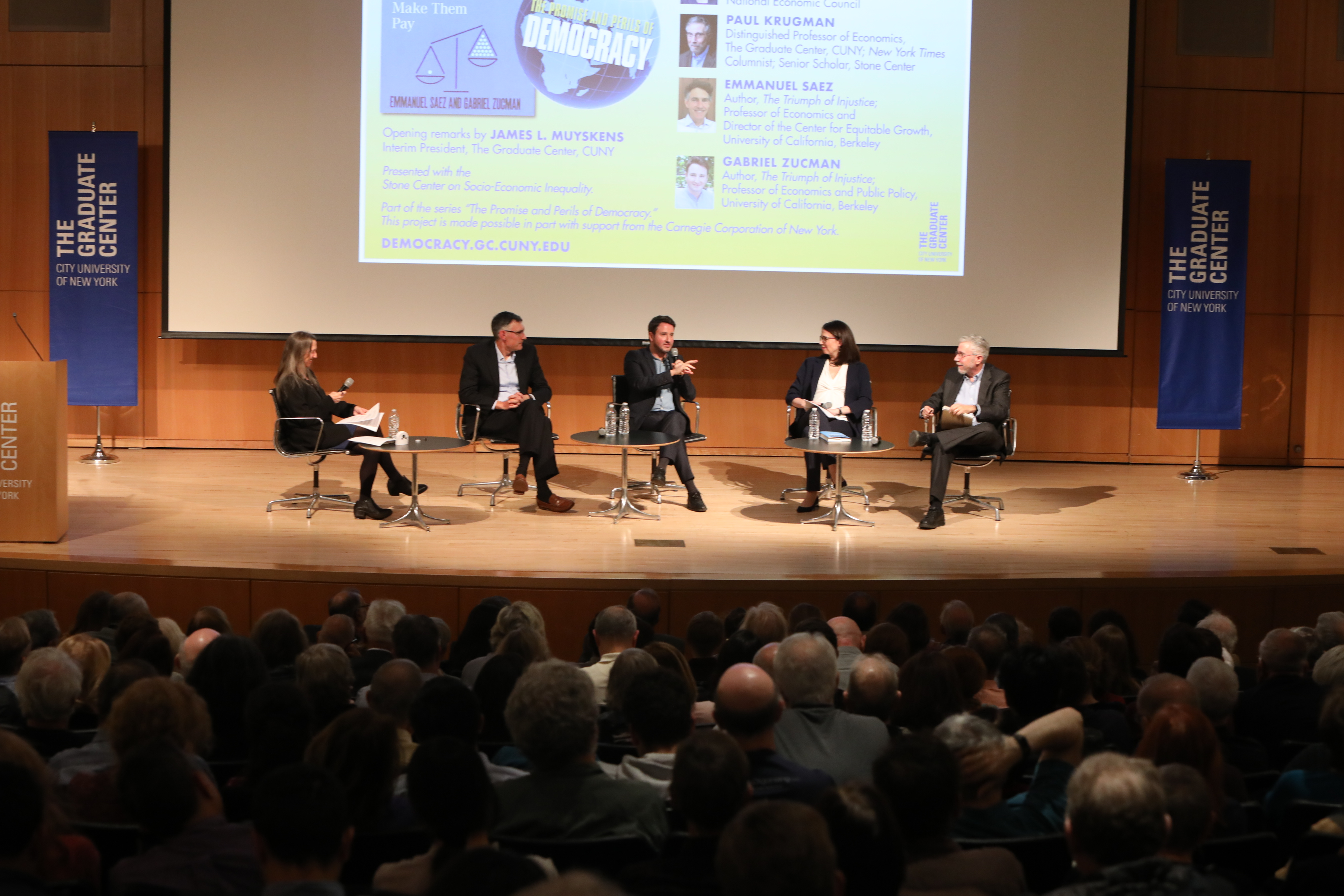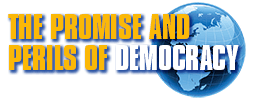Last night at The Graduate Center, and in front of a packed house, economists and authors Emmanuel Saez and Gabriel Zucman advanced their thesis that wealth is so unequally concentrated that the highest one-percent income bracket must be taxed much more heavily. They came to present their talked-about book, The Triumph of Injustice: How the Rich Dodge Taxes and How to Make Them Pay. Participating in the discussion that followed were Lily Batchelder, NYU law professor, and Paul Krugman and Janet Gornick of the Stone Center at The Graduate Center.

While common arguments claim the need for low rates of corporate taxation to remain internationally (and nationally) competitive, and that high taxation is un-American, sharply progressive taxation was practiced until the 1980s. This kept what has by now become an extreme inequality gap in check. According to Zucman, the power of new ideas concerning the corrosive effects of inequality, particularly Thomas Piketty’s scholarship, and the Trump administration’s 2017 tax reforms have forced attention on the issue. And at one point Krugman emphasized that polling has always supported higher taxes on the wealthy.
A theme of last night’s conversation was that extreme inequality is about more than wealth; it gives a small handful of people the ability to buy influence and power far beyond their numbers, which threatens democracy. The current tax system has shifted the tax burden to the poor and the working classes. This burden has significant effects, including impoverished living standards, diminished intergenerational social mobility (Batchelder), and diminished political influence. According to Zucman and Saez, the crisis of inequality is so severe that tax rates on the wealthy should no longer be guided by revenue maximization but by the urgent need to combat extreme inequality.
Watch the full video on our Graduate Center YouTube page soon.
